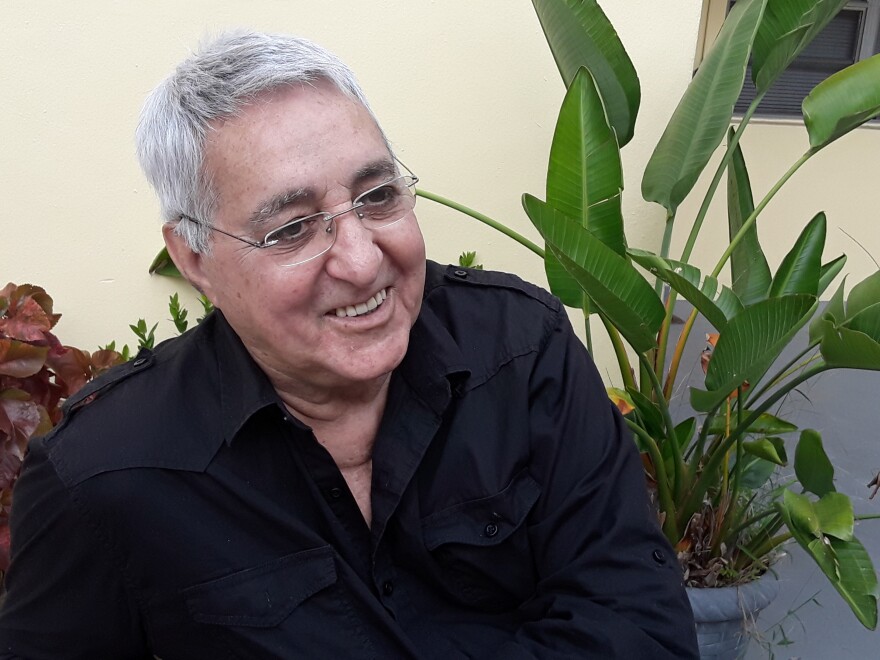Ari Bruno Camargo shows off the collection of blooming plants just outside his apartment door.
"This is my 'Suspended Garden of Bruno’s House," he says of the assorted pots, which sit against a railing.
The 78-year-old points to the small bird feeder. It’s the latest addition to the garden.
“I have a lot of blue jays come visit me,” he beams.
A few years ago, Bruno had nowhere to go. Sick and in a desperate place, he received help from Lambda Living, a nonprofit that provides services for LGBTQ seniors in Miami-Dade. The organization helped him find and pay for this one bedroom apartment in North Miami that he now calls his “palace.”
He's not alone. The number of seniors in the LGBTQ community is expected to hit 7 million by 2035, according to SAGE, a national advocacy group for LGBTQ elders. And for moderate to low-income seniors, housing that is affordable and welcoming is an urgent need.
“As LGBT people of those generations, they are four times less likely to have children,” says Cindy Brown, program manager for Lambda Living.
Brown says the seniors who come to her typically are all alone. Their long-time spouse may have passed away or “maybe they don't have any family left or maybe their family disowned them when they realized they were gay.”
A few years ago, Camargo was diagnosed with cancer. As he got sicker and with constant doctor visits, he had to stop working as a hairdresser. His bills started to pile up. Camargo sold his jewelry and pieces from his art collection to try to make ends meet, but within two years he could no longer pay his $1,500 monthly rent on Miami Beach and his landlord was getting ready to kick him out.
He says finding a place to live on a $750 social security check was impossible. He also wanted a space that was affirming for him as an aging gay man.
He was able to sign up for a senior housing complex, but it had a waiting list of three years.
“I was totally desperate, I even thought about suicide because you have no way to survive,” he says. “I didn’t want to be a charity case for my friends.”
In the absence of a familial support network, Brown says it doesn’t take much to end up homeless when an individual is struggling financially or trying to figure out how to live on a meager fixed-income.
Miami consistently ranks as one of the most unaffordable places to live in the nation. Nearly half of all households pay more than 30 percent of their income on housing, according to an affordable housing report by Florida International University and the University of Miami.
And while talks around affordable housing also include raising how much people get paid in the local economy, that's not really an option for seniors who can no longer work.
It’s why Lambda Living has started to focus on seniors like Camargo. The organization pays 70 percent of his rent.
“In the darkest hours, they gave me my life back,” Camargo says.
Lambda is providing two other elders in the same apartment complex with rent assistance, but they say their long-term goal is to create small intergenerational affordable housing models in Miami-Dade where younger and older people in the LGBTQ community can live.
Income inequality and a lack of housing have detrimental effects on LGBTQ seniors, says Joan Schaeffer, a longtime activist who helped start Lambda Living. She says she’s seen the struggles first-hand among some of her friends: depression, anxiety, and hopelessness.
“I just think that it's really important that we respect this group and do what is needed for them to live healthy full lives,” she says.
Back inside Camargo's apartment, he's going through art canvases that he painted. The walls are covered with framed art. He's been here for six months now.
"The moment I walked through that door was Jan 15," he says. "I collapsed and cried so much because I have a new page of my life being open for me."





